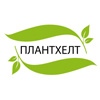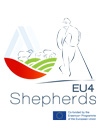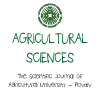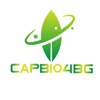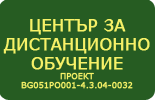Seed industry
|
Course title: |
Seed industry |
|
|
Course code: |
AFSIM |
|
|
ECTS: |
3 |
|
|
In-class hours |
Lectures: |
30 |
|
Laboratory work/Tutorials: |
15 |
|
|
Self-preparation hours |
Practical training: |
15 |
|
Other: |
45 |
|
|
Total hours: |
75 |
|
|
Language: |
English |
|
|
Study cycle: |
Bachelor, Master, PhD |
|
|
Semester: |
Winter & Summer |
|
|
Faculty: |
Faculty of Agronomy |
|
|
Name of the lecturer(s): |
Assoc. Prof. Marina Marcheva, PhD |
|
|
Mode of delivery: |
Face-to-face, distance learning, combination of both |
|
|
Prerequisites: |
Crop science, botany, genetics, physiology, biochemistry, phytopathology, entomology |
|
|
Learning outcomes of the course unit: |
The course “Seed industry “ is focused on organization and management of seed production. It presents the international legislation, methodology and principles in the various crop`s production. Analyses of deterioration causes of crop varieties and their control are presented in lectures and exercises. Students are trained to adequate methods for maintenance, storage and multiplication of basic and certified seeds and planting material of registered varieties according to CPVO and UPOV legislation. Differences between seed production of plant varieties for biological and conventional agriculture are discussed. Theoretical and practical knowledge acquired in the course are useful in scientific, administrative or practical field work and organization of the production and marketing of seeds. |
|
|
Course contents: |
Lectures (30 hours) 1. The value of the seed–crop products, regeneration and conservation. 2. Seed production – principles and goals. Types of varieties. Significance of the seed quality on the crop performance. 3. International seed legislation. Lows, organizations and technical guides in UPOV and CPVO. 4. Variety deterioration. Organizing and managing a seed production. Differences between seed production of plant varieties for biological and conventional agriculture. 5. Methodology for seed production of cereals. Hybrid production.
Seminars and practical exercises (15 hours) 1. Field training. Organization of the seed production field. 2. Discussion on the methods for seed production in self-pollinating crops and hybrids. 3. Field inspection and approbation. Harvesting, processing and storage. 4. Test of seed quality. Certification. 5. Seminar – Discussion of specific cases in seed production of field crop. |
|
|
Recommended or required reading: |
1. Baxter, D., L. Copeland, 2008, Seed purity and taxonomy, Application of Purity Testing Techniques to Specific Taxonomical Groups of Seeds, Michigan State University Press, 2008 2. Gaur, S.C., 2012, A handbook of seed procession and marketing, ISBN-13: 978-8177544558 3. McCormack, J.H., 2004, Seed processing and storage, McCormack, 2004 4. McDonald, M., L. Copeland, 1997, Seed production: Principles and practices, ISBN 978-1-4615-4074-8 |
|
|
Planned learning activities and teaching methods: |
Lecture, presentation, tutorials, conversation, discussion, exercises, practical training, multimedia presentation. |
|
|
Assessment methods and criteria: |
Exercises evaluation, Written exam or presentation of breeding project |
|
 - Events on the occasion of the 80th anniversary of AU
- Events on the occasion of the 80th anniversary of AU
